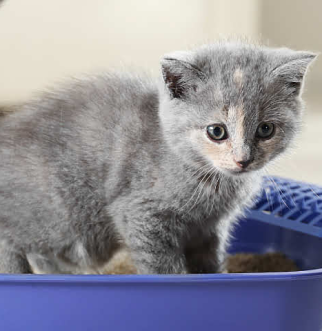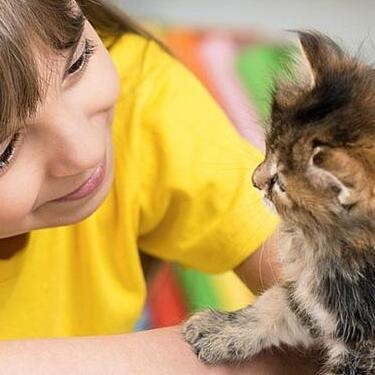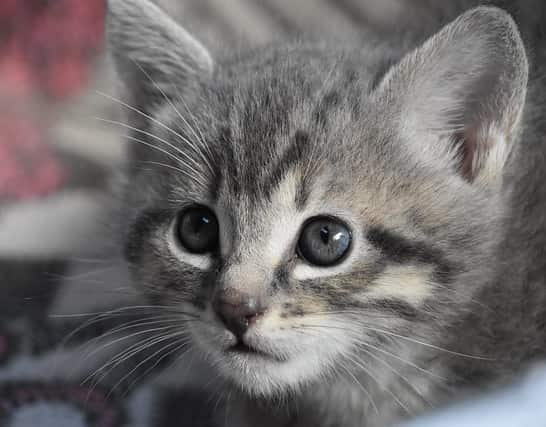
-
Find the right food for your pet
Take this quiz to see which food may be the best for your furry friend.
Find the right food for your pet
Take this quiz to see which food may be the best for your furry friend.
Featured products
 Adult 7+ Perfect Digestion Chicken, Whole Oats & Brown Rice Recipe Dog Food
Adult 7+ Perfect Digestion Chicken, Whole Oats & Brown Rice Recipe Dog FoodScience Diet's breakthrough nutrition supports ultimate digestive well-being & healthy microbiome for dogs age 7+
Shop Now Small & Mini Savory Stew with Chicken & Vegetables Dog Food
Small & Mini Savory Stew with Chicken & Vegetables Dog FoodA delicious complement to the nutrition of Science Diet Small & Mini 7+ dog food
Shop Now Adult Healthy Cuisine Roasted Chicken, Carrots & Spinach Stew Dog Food
Adult Healthy Cuisine Roasted Chicken, Carrots & Spinach Stew Dog FoodDelicious roasted chicken paired with tender vegetables in a succulent stew
Shop NowFeatured products
 Adult Savory Entrée Can Variety Pack Cat Food
Adult Savory Entrée Can Variety Pack Cat FoodPrecisely balanced nutrition with the delicious taste of savory minced chicken to help fuel the energy needs of cats during the prime of their life
Shop Now Adult 7+ Tender Tuna Dinner Cat Food
Adult 7+ Tender Tuna Dinner Cat FoodWith delicious chunks in a decadent gravy
Shop Now Adult 7+ Senior Vitality Chicken & Vegetable Stew Cat Food
Adult 7+ Senior Vitality Chicken & Vegetable Stew Cat FoodImproves Everyday Ability to Get Up & Go
Shop Now -
Dog
- Dog Tips & Articles
-
Health Category
- Weight
- Food & Environmental Sensitivities
- Urinary
- Digestive
- Joint
- Kidney
-
Life Stage
- Puppy Nutrition
- Adult Nutrition
- Senior Nutrition
Cat
- Cat Tips & Articles
-
Health Category
- Weight
- Skin & Food Sensitivities
- Urinary
- Digestive
- Kidney
-
Life Stage
- Kitten Nutrition
- Adult Nutrition
Featured articles
 Why Are Dogs and Cats So Cute?
Why Are Dogs and Cats So Cute?If waggy puppy dog tails and furry kitten yawns make you swoon, you're not alone. Why are cats so cute? And, dogs too! Let's find out!
Read More Does My Pet Hate Me?
Does My Pet Hate Me?Learn tips for bonding with your pet if you've ever thought, 'My dog doesn't like me, or 'Why do I have a standoffish cat?'
Read More Do Dogs and Cats have Belly Buttons?
Do Dogs and Cats have Belly Buttons?Learn whether cats & dogs have belly buttons like humans, what the function is, and if there are any health concerns associated with it.
Read More -

Now that you've decided to become a cat parent, it's time to figure out if you want a kitten or an adult or senior cat. Even at an early age, cats have big personalities, so consider what type of kitten will suit your lifestyle, especially as they mature into adulthood. Remember, cats can live up to 20 years or more — the two of you will live a long, happy life together!
So, how do you choose a kitten when there are so many adorable kitties in need of a forever home? Keep the following tips in mind so that you pick the kitty (or two!) who's best for you.
Consider How Young of a Kitten You Want
When choosing a kitten, consider whether you'd prefer a newborn or slightly older kitty.
Adopting a newborn kitten (younger than 4 weeks of age) requires a considerable amount of time and attention but can be a very rewarding experience. However, most kittens won't be ready for adoption until they're around 8-12 weeks old, after they've been weaned and litter-trained. The reason for this is that they are still gaining from the benefits of nursing from their mothers and socializing with the rest of their litter mates.
Make Sure Your Personalities Are Compatible
An important aspect of choosing any pet is finding a compatible personality. To determine if you're a good match, get down on her level — literally. Sit on the floor, hold her and pick her up if she lets you. Ask the shelter or her previous pet parent questions about her temperament and how she gets along with other cats and people. Bring all of your family members to meet her, including other pets of yours, if possible.
Never force the interaction on her though. If she seems scared or timid, it might just be because she is still learning about the world, but it might also because she doesn't feel comfortable around you. While this can be a sign that she might not be right for you, it just might mean that you need to take things a little slower and engage with her at her own speed.
While it is easy to get caught up in how cute a kitten is, it is vital to look beyond just the looks of the kitten. Judge her personality and how well it will fit in line with your family. If she's playful and energetic, make sure that's the type of cat you're looking for. If she seems like a cuddler, be prepared to share your bed. The adoption counselors at the shelter or breeders can help provide some more details on her personality when you're not around.
If you have other pets in the home or children, ask if they think the kitten you're looking at are compatible. The worst thing you can do is adopt a kitten and have to return it because it is not a good fit.


Tasty Tips
Know the Kitten's Health History
When choosing a kitten, inquire about her health history, including past vaccines and whether she's been spayed or neutered. Check her eyes, ears and coat for any signs of irritation or illness. You'll want to know about any health issues before adoption so that you're fully prepared for the time and resources the kitty will need from you.
Bringing Your Kitten Home
Have the essentials ready before bringing home your kitten. You'll want to cat-proof your home (place power cords and window blind cords out of reach, secure window screens, close off unsafe rooms), and have fresh water as well as a clean litter box and extra litter.
A cat's scratching and hunting instincts run deep; provide her with scratching posts, toys and even a plain old cardboard box — she'll love it! Remember that her diet is key to maintaining this energy level. Choosing the best kitten food will establish a lifetime of healthy eating habits.
Take your kitty to the veterinarian soon after adoption for a physical screening, and so you can discuss a vaccine schedule with the vet. You might also consider microchipping which, as the Chicago Cat Clinic notes, is the best way to find a lost cat.
Getting to Know Your New Kitten
Your kitty may be shy at first, but she'll start to feel at home — on her own timetable. "Kittens should be gradually and positively acclimated as early as possible to any stimuli or handling techniques that owners plan them to encounter during their lifetime (e.g., children, dogs, nail trims, tooth and coat brushing, car transport)," encourages the American Animal Hospital Association. Once she feels comfortable, you'll have a tough time getting her to stop playing.
One of the easiest ways to get a kitten acclimated to your home is to start small — keep her in a small enclosure when you don't take her out to play or use the litter box and gradually expand that space over time until she's ready to have run of your entire home.
Figuring out how to choose a kitten can be overwhelming when there are so many sweet kitties to pick from, but with these tips, you'll be sure to find your furry, forever friend!


Christine O'Brien is a writer, mom, and long-time cat parent whose two Russian Blues rule the house. Her work also appears in Care.com, What to Expect, and Fit Pregnancy, where she writes about pets, pregnancy, and family life. Find and follow her on Instagram and Twitter @brovelliobrien.
Related products
Related articles

Cats are naturally very clean and chances are your kitten will already have learned how to use the litter box from her mother before she comes to live with you.

How do you get a cat to lose weight? Learn all about cat foods for weight loss, including how to choose weight control cat food and exercise tips.

Discover how to train your cat, starting with very basic first steps that both reward good behavior and discourage the bad.

What is the best food for an overweight cat? Learn all about weight control food for cats, including what's in it and how it works.

Put your cat on a diet without them knowing
Our low calorie formula helps you control your cat's weight. It's packed with high-quality protein for building lean muscles, and made with purposeful ingredients for a flavorful, nutritious meal. Clinically proven antioxidants, Vitamin C+E, help promote a healthy immune system.
Put your cat on a diet without them knowing
Our low calorie formula helps you control your cat's weight. It's packed with high-quality protein for building lean muscles, and made with purposeful ingredients for a flavorful, nutritious meal. Clinically proven antioxidants, Vitamin C+E, help promote a healthy immune system.


